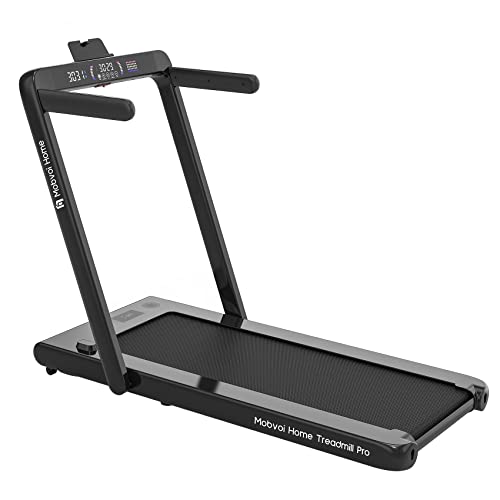Treadmills: A Comprehensive Guide to Understanding Their Functionality, Benefits, and Appropriate Selection
Introduction
Treadmills have actually become a staple in contemporary fitness routines, both in homes and fitness centers worldwide. They offer a practical and effective way to preserve cardiovascular health, boost endurance, and help in weight management. This post explores the different kinds of treadmills, their benefits, functions to consider when acquiring, and some FAQs to direct users in making informed choices.
Kinds of Treadmills
When it concerns picking a treadmill, it is important to comprehend the various types offered in the market. Here are the main categories:
1. Handbook Treadmills
- Mechanism: These treadmills have a simple design and count on the user's efforts to move the belt.
- Pros: More inexpensive, quieter operation, no electrical power required.
- Cons: Limited features, may not supply the exact same variety of workout strength.
2. Motorized Treadmills
- Mechanism: Powered by a motor that drives the belt, permitting users to walk or perform at a set pace.
- Pros: Greater range of speeds and inclines, equipped with various features such as heart rate monitors and workout programs.
- Cons: More pricey and may need more maintenance.
3. Folding Treadmills
- System: Designed for those with limited space, these treadmills can be folded for easy storage.
- Pros: Space-saving, typically motorized, versatile features.
- Cons: May be less long lasting than non-folding models.
4. Business Treadmills
- System: High-quality machines designed for use in gyms and fitness centers.
- Pros: Built to endure heavy use, advanced features, frequently consist of guarantees.
- Cons: Pricey and not ideal for home use due to size.
5. Curved Treadmills
- System: A distinct style that permits users to propel the belt using their own energy.
- Pros: Offers a more natural running experience, promotes much better running type.
- Cons: More expensive and can be noisier.
| Treadmill Type | Pros | Cons |
|---|---|---|
| Handbook | Budget friendly, no electrical energy needed | Restricted features |
| Motorized | Variety of speeds, advanced functions | Upkeep required |
| Folding | Space-saving, often motorized | May lack sturdiness |
| Industrial | Constructed to last, professional-grade features | Pricey |
| Curved | Natural running experience, promotes excellent type | Greater rate |
Benefits of Using Treadmills
Treadmills use many benefits that can contribute to one's overall health and wellness goals. Some of these advantages consist of:
- Convenient Workouts: Treadmills allow users to work out indoors despite weather conditions.
- Cardiovascular Health: Regular use can enhance heart health by increasing endurance and promoting healthy flow.
- Weight Management: Effective for burning calories, which helps in weight loss and management.
- Customizable Workouts: Users can manage speed, incline, and period to create customized exercise experiences.
- Security: Treadmills provide a predictable surface area, decreasing the danger of falls compared to outdoor running.
- Multifunctional: Many treadmills featured functions like heart rate screens, exercise programs, and even home entertainment systems.
Picking the Right Treadmill
When selecting a treadmill, potential purchasers ought to think about a number of essential elements:
Features to Consider:
- Motor Power: Typically measured in horsepower (HP), a motor strength of a minimum of 2.5 HP is recommended for major runners.
- Belt Size: A longer and larger belt accommodates numerous stride lengths, offering comfort throughout workouts.
- Slope Settings: Adjustable incline functions replicate outside hill running and can increase workout intensity.
- Weight Capacity: Ensure the treadmill can support the user's weight for security and durability.
- Console Features: Look for easy to use control panels, workout programs, and Bluetooth compatibility for streaming music or other functions.
Budget Considerations
- Under ₤ 500: Entry-level manual treadmills suitable for casual walkers.
- ₤ 500 - ₤ 1,500: Mid-range motorized treadmills that offer more features and better resilience.
- ₤ 1,500 - ₤ 3,000: High-end designs with advanced technology, larger motors, and longer service warranties.
- Over ₤ 3,000: Commercial-grade treadmills perfect for frequent usage in gyms or training centers.
Regularly Asked Questions (FAQs)
1. How typically should I use a treadmill?
It is advised to use a treadmill at least three to five times a week, including different strength levels for best results.
2. Can I drop weight by using a treadmill?
Yes, consistent use of a treadmill can add to weight loss, particularly when integrated with a well balanced diet plan and strength training.
3. What is the very best speed to walk on a treadmill for newbies?
A speed of 3 to 4 miles per hour is a suitable variety for beginners. It's vital to begin slow and gradually increase rate as convenience and endurance improve.
4. Do I require to use a treadmill if I currently run outdoors?
Using a treadmill can supply fringe benefits, such as regulated environments and differed exercises (slope, intervals) that are not constantly possible outdoors.
5. How do I preserve my treadmill?
Routine maintenance consists of lubricating the belt, cleaning up the deck and console, and checking the motor for optimum efficiency.
Treadmills are important tools for those seeking to enhance their physical fitness levels in a controlled and convenient way. With different types available, comprehending their functions and advantages is essential for making a notified purchase. By considering his explanation , space schedule, and spending plan constraints, individuals can discover the most ideal treadmill that fits their lifestyle. Integrating treadmill workouts into a balanced physical fitness routine can result in improved health results and an enjoyable workout experience.

